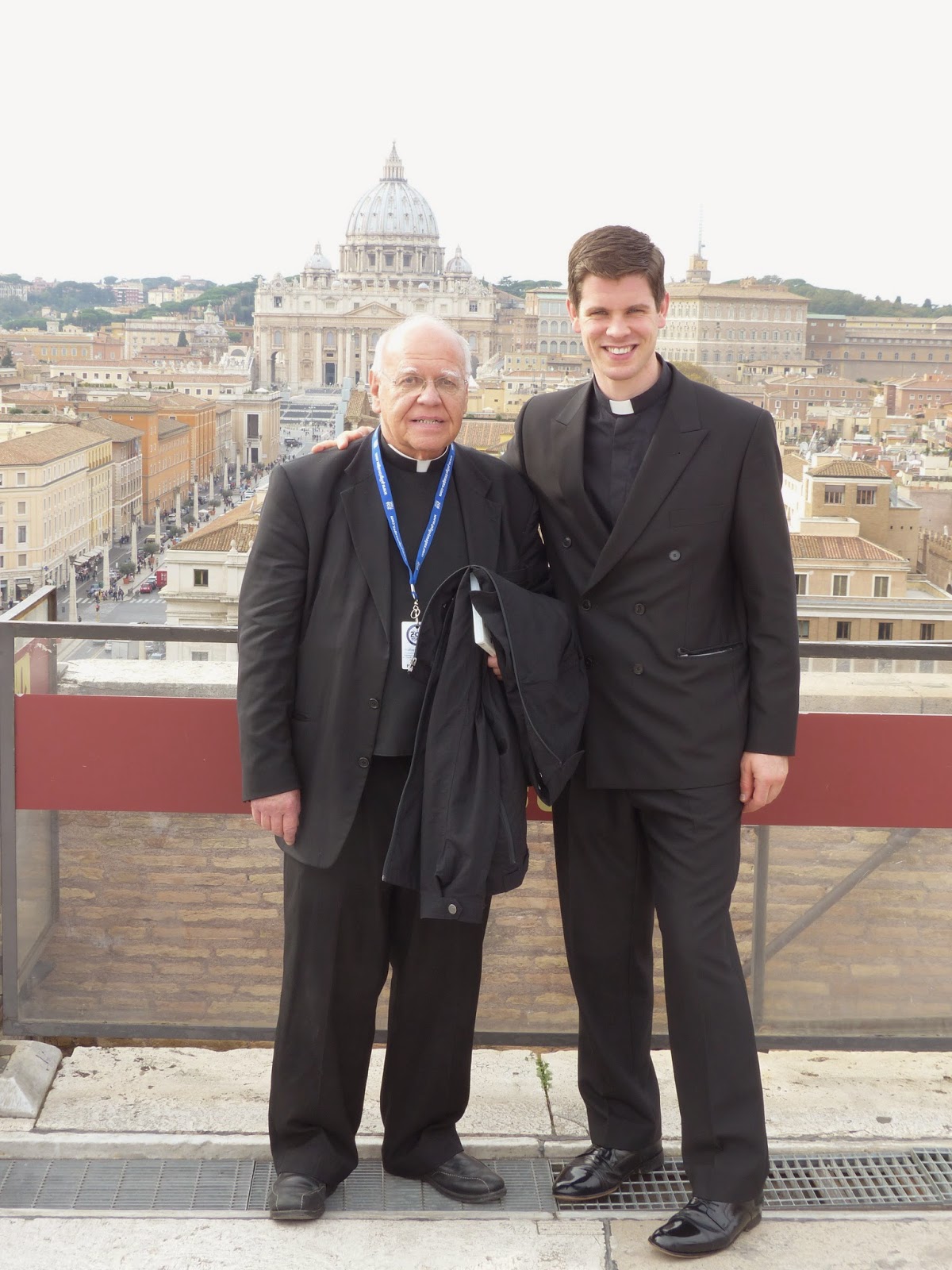With
its unmistakeable cylindrical contour and particularly scenic position along
the shore of the Tiber River, Castel Sant'Angelo is one of the town's
most famous landmarks. Its appearance today is the result of a
long series of transformations that, in reality, have left no traces of the
glorious mausoleum that Emperor
Hadrian built for
himself and his successors.
But in
medieval times, the mausoleum changed its function as an imperial
tomb. Towers and defensive walls were erected during the reign
of the Emperor Aurelian and a defensive bastion was built during
the barbaric invasions.
By the
Middle Ages, Castel Sant'Angelo had been transformed into a
practically unassailable fortress in a particularly strategic position that
defended the northern entrance of the city.
The
popes also commissioned the construction of a covered fortified corridor connected to the Vatican
Palaces, which was to be used in the event of danger as an
extreme escape route. Castel Sant'Angelo also guarded the riches of the popes:
the treasury room in the center of the fort was a kind
of safe for Rome during the Renaissance. The
castle was also used to store enormous reserves of food, which were to be used
in the event of an attack. There were wineskins set in the walls, enormous
water tanks, granaries and even a mill.
Today
the castle is visited by tourists from all over
the world and is
home to the National Museum of Castel Sant'Angelo.
A very dear landmark of the town is the statue of Archangel
St. Michael, high up on the enormous terrace, from which the
castle takes its name. It was created in memory of an ancient legend that
speaks of the terrible plague that struck Rome in 590 AD, which ended thanks to
the apparition of an angel that appeared above the castle and conceded
grace to the town
when he sheathed his sword.
Here are some photos. Below I'm standing in front of a statue of the great St. Michael the Archangel! This is not the statue on top of the entire Castel Sant'Angelo. See below for photo.
Here's the Ponte Sant'Angelo (bridge leading up to the castle).
The ten statues of angels that adorn
the bridge were designed in 1668 by the great sculptor, Gian Lorenzo Bernini,
on the order of pope Clement IX and created by Bernini and his students. The
angels all hold a symbol of the crucifixion of Jesus, such as a crown of
thorns, a whip, and so on.
Two of the statues were created by Bernini himself: the angel holding the Crown
of Thorns and the angel holding the INRI sign.
At the south end of the bridge stand two more statues, of the apostles Peter
and Paul. They were installed here in 1534. The statue of Peter was created by
Lorenzetto; the statue of Paul is the work of Paolo Taccone.
St. Peter:
St. Paul:
Some of Bernini's Angels:
View from the top:
Tiber River
St. Peter's Basilica
St. Michael the Archangel on top of the Castel Sant'Angelo
Umbrella pine trees in the distance (they look like umbrellas)!
Fr. Mike and Brother David
Panorama shot on top of the Castel Sant'Angelo





















No comments:
Post a Comment